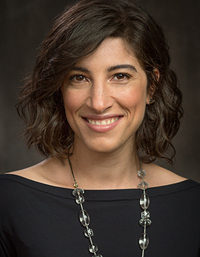Influence and Influencers: Collaborative Models for Addressing Disinformation
Abstract
Disinformation campaigns leverage the information ecosystem of the day. This talk covers the modern manifestation of disinformation campaigns: full-spectrum, bottom-up, participatory processes run by a variety of actor types. It presents a current case study, highlights challenges in current response frameworks, and offers a path forward: multistakeholder collaborative models with the potential to mitigate the challenge.

Renée DiResta is the Technical Research Manager at the Stanford Internet Observatory, a cross-disciplinary program of research, teaching and policy engagement for the study of abuse in current information technologies. Renee investigates the spread of malign narratives across social and media networks. Her work examines the ways in which distinct actors types leverage the information ecosystem to exert influence, from local activists promoting health misinformation and conspiracy theories, to well-resourced full-spectrum information operations executed by state-sponsored actors. Renée has advised Congress, the State Department, and other academic, civic, and business organizations. At the behest of SSCI, she led outside teams investigating both the Russia-linked Internet Research Agency’s multi-year effort to manipulate American society and elections, and the GRU influence campaign deployed alongside its hack-and-leak operations in the 2016 election. Renée is an Ideas contributor at Wired and The Atlantic, an Emerson Fellow, a 2019 Truman National Security Project fellow, a 2019 Mozilla Fellow in Media, Misinformation, and Trust, a 2017 Presidential Leadership Scholar, and a Council on Foreign Relations term member.